Peace On Earth

The role of human dignity, passive violence, religious cooperation, the internet and the water hemisphere in the quest for global harmony
An interview by Scoop co-founder Alastair Thompson with Soka Gakkai International (SGI) President Daisaku Ikeda
Introduction : Japanese peace builder and Buddhist philosopher Daisaku Ikeda has a unique perspective on the path humanity needs to follow to achieve Global Peace. Ikeda is President of Soka Gakkai International ( SGI ) a Buddhist Association founded in Japan in 1930 by conscientious objectors to Japan's war effort Tsunesaburo Makiguchi and Josei Toda.
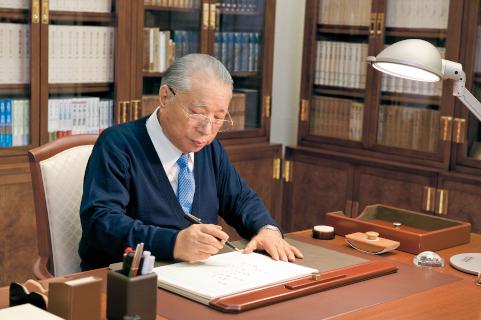
Daisaku Ikeda (© Seikyo Newspaper )
Makiguchi believed that New Zealand has a role to play to ensure global peace. He taught that peace would emanate from the centre of the water hemisphere of the world, which is New Zealand (he used the map pictured above to explain this).
In 2013 International Committee of Artists for Peace, an organisation founded by Ikeda, sponsored a season of performances of "iChoose" - an interactive anti-bullying dramatic production for Schools - in Auckland.
After attending a performance of iChoose at Kelston Boys and reading Daisaku Ikeda's 2013 peace proposal Scoop Editor Alastair Thompson requested an interview. The interview was conducted by way of submitted written questions which were translated and answered by Mr Ikeda over the new year. Today, March 16th is Kosenrufu Day (World Peace Day), a day when SGI's 12 million members renew their determination to work for world peace.
Question One : Human Dignity
Question : In line with your comments in your 2013 peace proposal about the dignity of life, what aspects of human nature do you feel contribute to peace and what aspects undermine it?
Daisaku Ikeda : In my peace proposal last year, I discussed ways to build a sustainable global society, a vision currently being emphasised by the United Nations. I believe that the inviolable dignity of life should be the basis for the challenge of constructing such a society.
As a human being, we may decide to place priority on our family life or, conversely, we may wish to be perceived as a powerful individual. On the surface, the former gives the impression that we are peace-loving and the latter could seem somewhat belligerent. The effect of these commitments can be completely reversed, however, depending on the situation.
For example, when a conflict between two groups is intensifying, the desire to protect one’s loved ones can actually be one factor driving people to violence. On the other hand, a strong sense of self can serve as a source of hope and courage and inspire others to overcome formidable blows of hatred and discrimination through the use of nonviolence. We see this in the examples of Mahatma Gandhi and Dr. Martin Luther King, Jr.
It is clear that human nature is multi-faceted and is not in itself the essential cause of war and violence. As the Seville Statement on Violence adopted at the General Conference of UNESCO in November 1989 made clear, “It is scientifically incorrect to say that war or any other violent behaviour is genetically programmed into our human nature.”
I believe that our most urgent challenge is to foster a social ethos that can keep people from being swept up in collective psychologies and violent agitation. The Spanish thinker José Ortega y Gasset warned, “This is the epoch of ‘currents’ and of ‘letting things slide.’ Hardly anyone offers any resistance to the superficial whirlwinds that arise in art, in ideas, in politics, or in social usages.”
I believe that a spirit of empathy based on our sense of the universal dignity of life should be the foundation for such an ethos.
To prevent the desire to protect one’s beloved family from causing one to be swept toward war and violence, it is crucial that we are able to perceive the heartfelt and equivalent desire of others - the members of other groups - to ensure the survival of their own loved ones.
In the same way, it is crucial to remind ourselves not to pursue our own happiness at the expense of the happiness of others, to prevent our own desire to be empowered and effective from threatening the lives and dignity of others.
It was from this perspective of promoting the dignity of life that I suggested three guidelines for action in my proposal last year: the determination to share the joys and sufferings of others; faith in the limitless possibilities of life; and the vow to defend and celebrate diversity.
I used these words - determination, faith and vow - because it is crucial for each one of us to maintain a deeply willed commitment, rooted in an appreciation of the dignity of life, if we are to resist the negative currents of society and build enduring bastions of peace and harmonious coexistence.
We of the SGI have been working to promote and encourage such an approach to life, thereby helping to establish at the grassroots level a culture of peace and human rights as promoted by the United Nations.
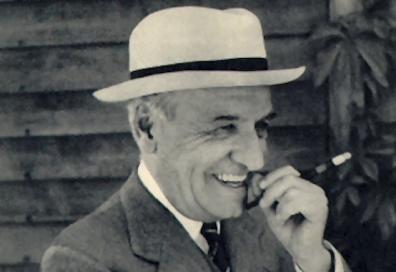
“This is the epoch of ‘currents’ and of ‘letting things slide.’ Hardly anyone offers any resistance to the superficial whirlwinds that arise in art, in ideas, in politics, or in social usages.” - Spanish philosopher José Ortega y Gasset
Question Two : Passive Violence
Question : In relation to SGI's activities aimed at empowering civil society, what is the role of individuals in eliminating passive violence? What impact does their doing this have on societal resilience?
Daisaku Ikeda: Violence is generally understood in terms of physical violence, the use of force to injure or take the lives of others, ranging from assault to murder and war.
We must not, however, overlook the prevalence of another form of violence: passive violence that threatens people’s rights and harms their dignity through discriminatory or oppressive words and attitudes but without resort to direct physical assault.
Passive violence not only causes pain and suffering to others but also can serve, if left unabated, as the breeding ground for physical violence against minority groups at times of social upheaval. It can contribute to an environment that encourages or tolerates such behaviour.
We see an example of this in hate crime and hate speech, which have been visible in many societies in recent years. While they may not involve direct assault, they stem from the same root as direct violence in that they are intended to harm others and are based on hatred.
The “Pyramid of Hate” created by the Anti-Defamation League and the Survivors of the Shoah Visual History Foundation categorises such hatred-based behaviours as follows: 1. Prejudiced attitudes, 2. Acts of prejudice, 3. Discrimination, 4. Violence and 5. Genocide. According to this view, social divides and conflicts do not happen suddenly. When the kind of behaviours that are charted on the lower levels of the pyramid are treated as acceptable, things may continue to escalate until they reach the level where unspeakable atrocities take place.
It is important therefore to reject as unacceptable the behaviours on the lower levels of the pyramid and encourage others to do so.
I am reminded of words spoken by Arun Gandhi, nonviolence activist and grandson of Mahatma Gandhi, during our meeting in July 2000 in Tokyo. Mr. Gandhi explained that passive violence is indirect and that people might find themselves a party to such violence without even being consciously aware of it. This might involve pressure, coercion, or various forms of oppression and discrimination. Since it is not physical, it tends to be overlooked. He said that his grandfather had taught him that to overlook or pretend not to see evil was itself a form of violence.
Founding Soka Gakkai president Tsunesaburo Makiguchi (1871-1944) resisted Japan’s militarist regime during World War II and died in prison, refusing to the end to recant his beliefs. He made a similar observation in the year before his imprisonment:
“The root malady of contemporary society lies in not distinguishing failure to do good with doing good, viewing the former as somehow different from doing evil and acceptable as long as one does not violate any law. This is why egotism and hypocrisy are running rampant.” [1]
As heirs to Makiguchi’s conviction, we of the SGI have been striving to help move society toward peace and coexistence at the grassroots level, in order to prevent it from becoming engulfed in hatred and violence.
We have been striving to extend a multilayered network of friendship among individuals deep into society, based on one-on-one dialogue across ethnic and cultural differences. Such efforts can help to reinforce social resilience and robustness in the face of incitement to racism, and to prevent people from being swept away by the group psychology of xenophobia and discrimination.
We have consistently promoted educational and cultural exchange, even in times of rising political and economic tensions between nations. Through such efforts, the door of dialogue and mutual understanding between people can always be kept open.
We have focused particularly on expanding exchange and communication among the members of the younger generation. Efforts for peace and friendship should not stop at a single generation. We must work to pass on the spirit of amity from one generation to the next and transmit lessons learned about the value of peaceful coexistence - and wisdom gained - on into the future.
Our commitment to reaching out to those who are suffering and empowering them is of course shared by other non-governmental organisations and civil society groups. We will continue to work with like-minded individuals and groups to enhance social resilience through the solidarity of ordinary citizens.
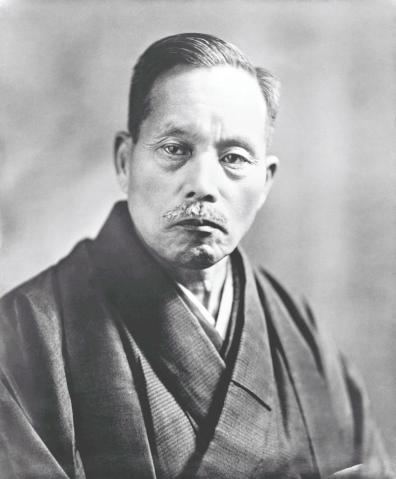
“The root malady of contemporary society lies in not distinguishing failure to do good with doing good, viewing the former as somehow different from doing evil and acceptable as long as one does not violate any law. This is why egotism and hypocrisy are running rampant.” [1] - Founding Soka Gakkai president Tsunesaburo Makiguchi (1871-1944)
[1] The Complete Works of Tsunesaburo Makiguchi, vol.10, p.29
Question Three : Religious Cooperation
Question : Is cooperation between different religions possible in the effort to build peace? And how can we best foster this cooperation?
Daisaku Ikeda : I believe that such cooperation is possible. But we need to make earnest efforts to foster it.
As a Buddhist, I have engaged in dialogue with leaders and experts with different religious backgrounds from throughout the world for over four decades. My goal has been to foster heart-to-heart connections among people in order to build a peaceful world.
I can conclude from my experience that, despite our differences in faiths, doctrinal interpretations or religious ideologies, we all share a common humanity - the desire for peace, concern over global problems and earnest hope for the future of humankind.
In the discussions we shared, former Indonesian president and leader of the largest Islamic group in Indonesia, Abdurrahman Wahid (1940-2009) , expressed his hope that young people would not be driven purely by self-interest but be able to act for the benefit of society at large and for a world of peaceful coexistence. People of conscience, regardless of their religious tradition, embrace the same sentiments.
In terms of how best to foster cooperation between different religions, I think that a problem-solving approach is most effective. Different religions can engage in dialogue, discussing specific themes related to such global problems as conflict, environmental destruction, poverty and disaster response. They can clarify what actions need to be taken and what kind of wisdom and spirituality their tradition has to offer the world. They can exchange ideas and explore specific ways to work together.
Throughout history, there have been wars and violence caused by religious conflict. As humankind confronts common challenges - global threats of increasing urgency that afflict people regardless of religious differences - the role and potential contributions of religions are being reevaluated in a more positive light: it is now acknowledged that religion and spirituality can be powerful, benign socio-cultural forces for motivation, inclusiveness, participation and sustainability.
The contribution of religion is drawing more attention today within the international community. As one example of this, a session entitled “Strengthening Humanitarian Protection Efforts: the Role of Faith-Based Organizations in Complex and Insecure Operating Environments” was held at the UNHCR Annual Consultations with NGOs held in Geneva in June 2011, just a few months after the Great East Japan Earthquake, and SGI representatives were invited to take part.
We have entered an era where different religious traditions need to work together, with the United Nations serving as a platform for cooperation. They can strive to awaken the goodness in people that seeks construction and solidarity rather than destruction and division, and strive with one another to make their own unique contribution to the solution of global problems. The humanitarian spirit of the world’s religions would be enriched through such efforts, further deepening the cooperation among them.
I am here reminded of these words by Former Czech president Václav Havel: “The only meaningful objective for Europe in the next century is to be its ‘best self,’ that is, to revitalise its best intellectual traditions and thereby contribute creatively to a new form of global community of living.” [2]
If “Europe” here is replaced with “each religious tradition,” the role of religion in the world in the 21st century can be more clearly understood.
There are many admirable institutions and initiatives promoting interfaith cooperation and dialogue. The three research institutions I founded, the Institute of Oriental Philosophy, the Toda Institute for Global Peace and Policy Research and the Ikeda Center for Peace, Learning, and Dialogue, have also made efforts to promote dialogue among faiths and civilizations.
The larger purpose for such efforts lies in encouraging each faith and civilization to explore, through dialogue, its own “best self,” as well as ways to transcend differences and work together to solve global problems.
Currently, discussions are under way in forums associated with the United Nations on how to formulate a global development agenda beyond 2015 as the successor of the Millennium Development Goals (MDGs) which are aimed at alleviating the suffering caused by poverty and hunger.
Viewing this as an unprecedented endeavour for humanity, I urge that full-fledged dialogue and cooperation among religions be initiated through efforts to achieve the new globally-agreed set of common goals that will emerge from this process.
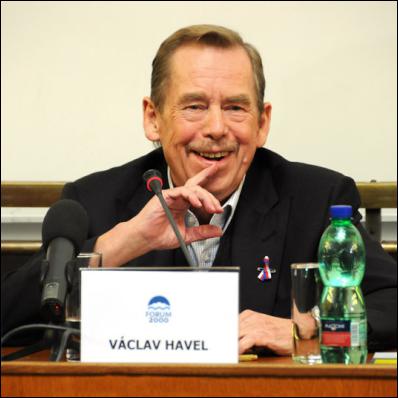
“The only meaningful objective for Europe [… or each religious tradition ] in the next century is to be its ‘best self,’ that is, to revitalize its best intellectual traditions and thereby contribute creatively to a new form of global community of living.” Former Czech president Václav Havel
[2] Writing Europe: What is European about the Literatures of Europe? Ursula Keller, Ilma Rakusa, eds., Budapest: Central European University Press, 2004, p.5 http://books.openedition.org/ceup/1622
Question Four : The Internet & Change
Question : How do you see the role of the internet and technology in an ever-changing world? You mention in your 2013 peace proposal the harm that can be caused by speed. In a world in which the speed of change is overwhelming nearly all of us, what can we do as individuals to protect ourselves and help ourselves manage?
Daisaku Ikeda : The rapid development of information and communication technology - -as seen in the internet, which spread quickly after the end of the Cold War, following the standardization of the internet protocol suite in 1982 - is rightly known as the information revolution. Its enormous impact on the world is indeed equivalent to that of the 18th century Industrial Revolution.
Global diffusion of information now enables us to learn instantly about what is taking place in another part of the world. Moreover, free and flexible forums of communication can be created online, something that would have been beyond our wildest imagination during the Cold War. Communication technology is rapidly bringing down geographical and physical barriers that have hindered exchange among people who live far away from each other.
Above all, the significance of the information revolution is that it prevents knowledge and information from being monopolised by a handful of people or groups, enabling many people to share it in a more democratic fashion.
Access to information has long been one-sided, provided unilaterally by the press and mass media. It is extremely significant that independent internet news websites such as Scoop now provide a forum for taking up issues from different perspectives. Such online sources can enlighten people about issues and diverse points of view that they were previously unaware of, supporting the development of more sound, democratic foundations for society.
To share some of our own efforts related to grassroots peacebuilding, a few years ago, the SGI launched an online media project, Toward a Nuclear Free World, (http://www.nuclearabolition.info/ ) aimed at promoting awareness about efforts for nuclear abolition from the perspective of civil society. This site is a collaboration with Inter Press Service (IPS), a news agency that has long been committed to amplifying the voices of the developing world.
In June 2012, we co-organised an interdisciplinary roundtable on the role of education and learning toward a sustainable future as a side event at the United Nations Conference on Sustainable Development (Rio+20). On that occasion, Regional Director of Inter Press Service for Latin America Joaquin Costanzo stressed that raising awareness of social issues and encouraging people to participate in decision-making processes is a key mission of the mass media. In this respect, I think that internet news websites will play an increasingly important role.
Unfortunately, it is also clear that innovations in information technology have created more negative possibilities: cyberspace can used to instigate conflict, hatred and discrimination. Public opinion can be manipulated through the presentation of distorted information and the spread of stereotyped images.
The internet is undoubtedly useful, in that we can instantly access information online. But some of what is available online is of a dubious nature, and certain information is obviously intended to mislead the audience.
In this sense, whether technology will be used for good or evil purposes entirely depends on individuals.
I applaud the development of media literacy education such as that now offered in New Zealand and Australia, and feel that this should be made available on a global basis in order to help people navigate this ocean of information.
My mentor, educator Josei Toda (1900-58), second president of the Soka Gakkai, observed: “The confusion of knowledge with wisdom is one of the great misfortunes of our times... Knowledge and wisdom are not the same thing. While knowledge may be a door that opens the path to wisdom, it is not, in itself, wisdom.”
The availability of enormous amounts of information is of no worth if we allow it to undermine our ability to think for ourselves or become affected by intentional misinformation. We need to foster wisdom in order to truly benefit from knowledge, as we are living in an age where access to knowledge is easier and open to more people than ever.
Ultimately, I believe that such wisdom can be found in having a clear sense of purpose upon which one bases one’s life. Alongside efforts to enhance media literacy, the kind of humanistic education that is focused on cultivating a solid sense of purpose in life can be a key element here.
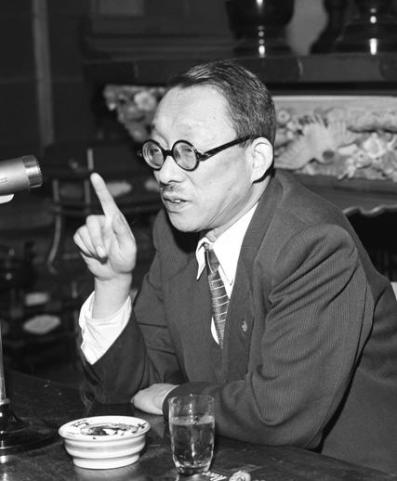
"The confusion of knowledge with wisdom is one of the great misfortunes of our times... Knowledge and wisdom are not the same thing. While knowledge may be a door that opens the path to wisdom, it is not, in itself, wisdom.” - Educator Josei Toda (1900-58), second president of the Soka Gakkai.
(© Seikyo Newspaper )
Question Five : The Water Hemisphere
Question : What is the role of the water hemisphere and spirituality in the global quest for peace?
Daisaku Ikeda : Soka Gakkai founding president Tsunesaburo Makiguchi was an educator who prioritised the happiness of children in prewar Japan, at a time the foremost objective of education was to foster obedient servants of the state.
He was also a geographer. In his 1903 book The Geography of Human Life, he presented an idea quite different from the conventional way of seeing the Earth - two-dimensional maps divided into national territories. Instead, he said we could divide the globe into a “land hemisphere” and a “water hemisphere.” He illustrated this using two circular-shaped maps, with London serving as the pole of the land hemisphere and New Zealand as the pole of the water hemisphere.

Click for big version
Tsunesaburo Makiguchi's maps of the "land" and "water" hemispheres of the earth. From the book "The Geography of Human Life" (1903)
Seeing
the oceans as thoroughfares connecting countries instead of
as something that divides them, Makiguchi emphasised the
importance of fostering an ethos that could open up paths of
peace, friendship and harmonious coexistence.
I think it is extremely significant even from a contemporary standpoint that New Zealand is at the centre of this water hemisphere composed of oceans filled with infinite possibilities.
During the two world wars of the twentieth century, the Atlantic Ocean became a battlefield. The Pacific Ocean, which both our countries face, also saw many fierce battles during World War II. Based on the lessons of history, the world now needs a culture that celebrates diversity such as that fostered in New Zealand over many decades. The adamant will to never repeat the atrocities of war is also indispensable, as seen in New Zealand’s unambiguous stance against nuclear weapons and efforts to develop the South Pacific Nuclear Free Zone Treaty (the Treaty of Rarotonga).
The first nation in the world to grant women suffrage, New Zealand has also consistently been known for its emphasis on the guarantee of human rights and a strong social welfare system. Upholding human rights and humanitarianism as national priorities, New Zealand has provided an example that should be emulated by nations around the world.
In The Geography of Human Life, Makiguchi called for a transformation in the modes of competition among nations: from military, political and economic competition that pursue one’s own interests at the expense of others to a “humanitarian competition” that seeks to bring out the best of each nation’s qualities through efforts to contribute to the well-being of other countries and the world.
I believe that New Zealand’s strong traditions of fairness and concern for the vulnerable can help lead the world in the direction of humanitarian competition in the 21st century. Nothing can justify the continuation of the current state of the world where so many people suffer in a cruel zero-sum game in which the strong prey upon the weak.
Through humanitarian competition aimed at pursuing peace and happiness for both oneself and others, we can build a win-win world that allows the dignity of all people to shine. It is my earnest hope that Japan and many other countries will follow in the footsteps of New Zealand in order to create such a truly humanistic global society.
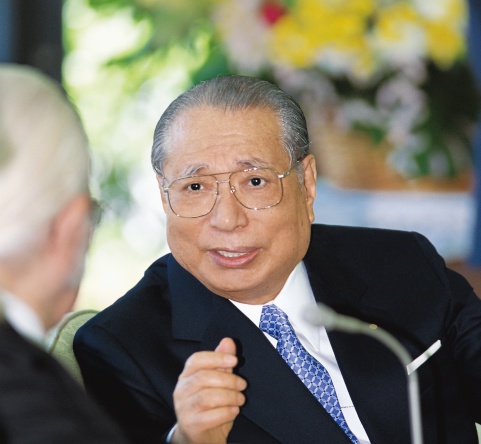
“I believe that New Zealand’s strong traditions of fairness and concern for the vulnerable can help lead the world in the direction of humanitarian competition in the 21st century. Nothing can justify the continuation of the current state of the world where so many people suffer in a cruel zero-sum game in which the strong prey upon the weak.” - Soka Gakkai International President Daisaku Ikeda
( © Seikyo Newspaper )
Daisaku Ikeda: A Profile
Buddhist philosopher, author and peacebuilder, Daisaku Ikeda is president of the Soka Gakkai International (SGI), a Buddhist NGO with more than 12 million members around the world. He is also founder of the Institute of Oriental Philosophy, the Ikeda Center for Peace, Learning, and Dialogue, the Toda Institute for Global Peace and Policy Research and the Soka education system (see Soka University of America, Soka University (Japan), research on Soka education system.)
Born in Tokyo in 1928, Ikeda experienced firsthand the human loss and turmoil of war. In the chaos of postwar Japan, he embraced Buddhism through encountering educator and ardent pacifist Josei Toda, head of the Buddhist lay organisation Soka Gakkai, who had been imprisoned for his beliefs during World War II. These experiences underlie Ikeda’s efforts toward the creation of a global culture of peace.
Over the years, Ikeda has engaged many of the world’s leading thinkers in dialogue and written extensively on a range of issues related to peace and human security. His annual proposals for peace issued each year on the anniversary of the founding of the SGI - January 26, 1975 - review the state of the world and offer practical suggestions grounded in Buddhist philosophy.
A Forum for Peace: Daisaku Ikeda's Proposals to the UN, a book containing highlights of 30 years of Ikeda's peace proposals, was published by I.B.Tauris in January 2014, with a foreword by Ambassador Anwarul K. Chowdhury, former Under-Secretary-General and High Representative of the UN. The book was launched at the UN Headquarters in New York on 20 February.
Ikeda is engaged in an ongoing dialogue on peacebuilding that will be published in book form with Professor Kevin Clements, Director of the National Centre for Peace and Conflict Studies at Otago University. Prof. Clements is also secretary-general of the Toda Institute for Global Peace and Policy Research.
Ikeda has been a continuing source of inspiration for the SGI's global grassroots activities in such areas as human rights protection, nuclear abolition, disarmament, sustainable development and cultural exchange. In New Zealand, these activities have included the collection of 60,000 signatures in a street appeal in support of the Abolition 2000 petition to abolish nuclear weapons (1998), promoting the award winning anti-violence programme Victory Over Violence Aotearoa (2003-) and an anti-bullying programme for high school students, iChoose (2012). In September 2000, the Rotorua District Council established the Ikeda Hall Peace Garden in honour of Ikeda’s peace efforts, under the leadership of Grahame Hall, then mayor of the city
Ikeda has received numerous academic honours, honorary citizenships and awards from around the world for his contributions of peace and education, including several from New Zealand.
For more information see
http://www.daisakuikeda.org/
http://www.icapeace.org/ (creators of
the iChoose initiative)
http://www.sginz.org/.
Alastair Thompson is the co-founder, editor and publisher of Scoop Independent News, New Zealand's oldest and largest independent online news outlet. He posts to Twitter as @althecat and on Google+.


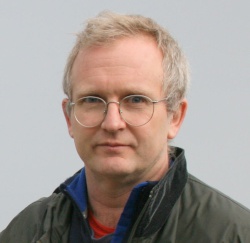
 Richard S. Ehrlich: Deadly Border Feud Between Thailand & Cambodia
Richard S. Ehrlich: Deadly Border Feud Between Thailand & Cambodia Gordon Campbell: On Free Speech And Anti-Semitism
Gordon Campbell: On Free Speech And Anti-Semitism Ian Powell: The Disgrace Of The Hospice Care Funding Scandal
Ian Powell: The Disgrace Of The Hospice Care Funding Scandal Binoy Kampmark: Catching Israel Out - Gaza And The Madleen “Selfie” Protest
Binoy Kampmark: Catching Israel Out - Gaza And The Madleen “Selfie” Protest Ramzy Baroud: Gaza's 'Humanitarian' Façade - A Deceptive Ploy Unravels
Ramzy Baroud: Gaza's 'Humanitarian' Façade - A Deceptive Ploy Unravels Keith Rankin: Remembering New Zealand's Missing Tragedy
Keith Rankin: Remembering New Zealand's Missing Tragedy